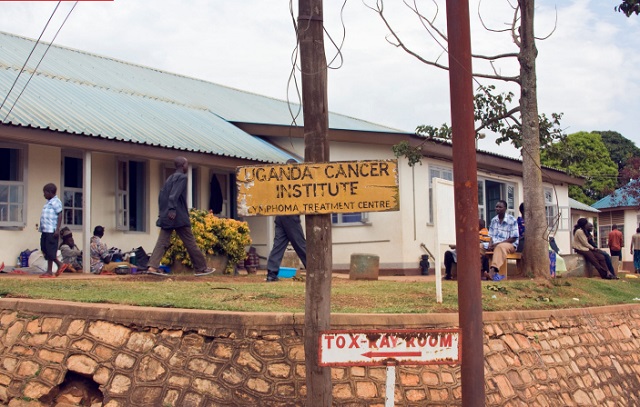
The political elite have not understood what the poor ordinary people go through because they are not treated in Uganda
Kampala, Uganda | MUBATSI ASINJA HABATI | When Zebiya Kabugho’s became diseased in 2020, she travelled about 300km from Rwenzori Mountains to the Uganda Cancer Institute (UCI) where she was diagnosed with breast cancer. She and her husband were immediately gripped with fear of death.
Even when a doctor at the Cancer Institute told Kabugho that the good news was that her breast cancer was still at any early stage where it could be managed, they remained uncertain.
“I was confused. How could this be good news since I had heard that cancer is a sure death sentence,” says Kabugho.
Then restrictions brought in COVID-19 pandemic added to their pain. They could not travel back home because the transport costs were hiked and have since then been stuck in Kampala. Over six months, Kabugho underwent endless tests. She visited the Cancer Institute at Mulago Hill twice a week and spent at least Shs100,000 on each visit. Sometimes it was not receipted or a bribe. She paid because she was desperate. And her fate is the fate of hundreds of cancer patients who wallow in pain at the UCI.
Despite its billing as the centre of excellence in oncology in the East African region, the UCI is an overcrowded facility where patients hustle for the attention of care givers. Often they part with the little money they have in dubious deals to access services that should be free.
Treatment for cancer is too expensive many Ugandans. So, government subsidises the treatment by procuring equipment, building capacity and buying drugs. But these are barely enough to serve the surging numbers.
Nursing a cancer patient requires readily available cash which many Ugandans do not have. The Cancer Institute reports that there is an increase in the number of patients seeking treatment. The challenge is that many are diagnosed with cancer when it has advanced and it is a bit late to reverse it.
The situation at the UCI is very challenging; especially if the patient is too weak to walk.
“First of all, it is not easy to get a wheelchair. Secondly once you get a wheelchair pushing it between wards and upstairs is not simple. The wards are up and the medicines and consultant doctors are on different floors. This is not easy for new patients who may not know their way around,” narrates one of the cancer patient caregivers.
When we visited recently, we found a young man in his 20s lying on the cold tiled floor in the hallway on 4th floor of UCI. He has cancer in the thigh. The thigh has swollen to be bigger than his waist. Doctors say it will continue to swell if he does not get treated faster. He is in great pain. He can no longer walk by himself. He walks with the aid of a stick because he has no money to buy modern clutches. He had started chemotherapy when his blood count dropped. He had to get blood transfusion and then feed well. But he could not easily do this since he needed at least Shs200,000 per week. His friends created a WhatsApp group to collect money for his medical care.
Not many cancer patients at Mulago’s UCI are as lucky to have people who mind about them by raising some Harambe for them.
“The political elite has not understood what the poor ordinary people go through with cancer when they have no money. This is because they are not treated in Uganda, themselves. So, if they were treated at Mulago Hospital, perhaps they would understand what it is to go to Mulago and there is no medicine,” says Kabugho, who recently had a mastectomy; surgery in which a breast is cut off to prevent cancer from spreading to the rest of her body.
Studies show that cancer is on the rise across the world. Medical researchers suggest that the increase is likely due to a combination of environmental and lifestyle factors, and changes in screening and diagnosis.
Figures from UCI show all cancers on the rise, and deaths too. The institute records over 60,000 cases of cancer per year in the country. Cervical cancer is the commonest cancer of women in Uganda. Over 80% of women diagnosed in Mulago National Referral and Teaching Hospital, the biggest hospital in Uganda, have advanced disease. Other cancers common in Uganda are prostate in men above 40, breast cancer, colon, lymphoma and oesophagus among others.
Each year, about 22,000 deaths occur in the country due to cancer. In addition, the risk of cancer before the age of 65 years is 10 per cent, and in the next five years, it is estimated that there will be 80,000 cancer cases in the country at any one time.
The trends are also observed at the UCI, where almost 80 per cent of patients present the disease in advanced stages, hence limited interventions to prolong survival.
It is these desperate patients that face financial challenges most. This is made worse because this is the main cancer treatment centre in the country with more specialists. Many patients traveling long distances to access medical care find themselves stuck in the vicinities of the institute, most times sleeping under a shade purposed to serve as a waiting area. UCI has plans to build a hostel for patients who are not admitted in the wards as a way of partly solving the issue of overcrowding.
This after a report by the Auditor General noted that: “Since cancer treatment may require routine or daily dosage and check-up, most patients who travel from distant areas of the country and cannot afford travelling back and forth, especially if time in between the treatment phases is short, opt to reside at UCI compound, verandahs and corridors until the treatment is completed.”
 The Independent Uganda: You get the Truth we Pay the Price
The Independent Uganda: You get the Truth we Pay the Price


